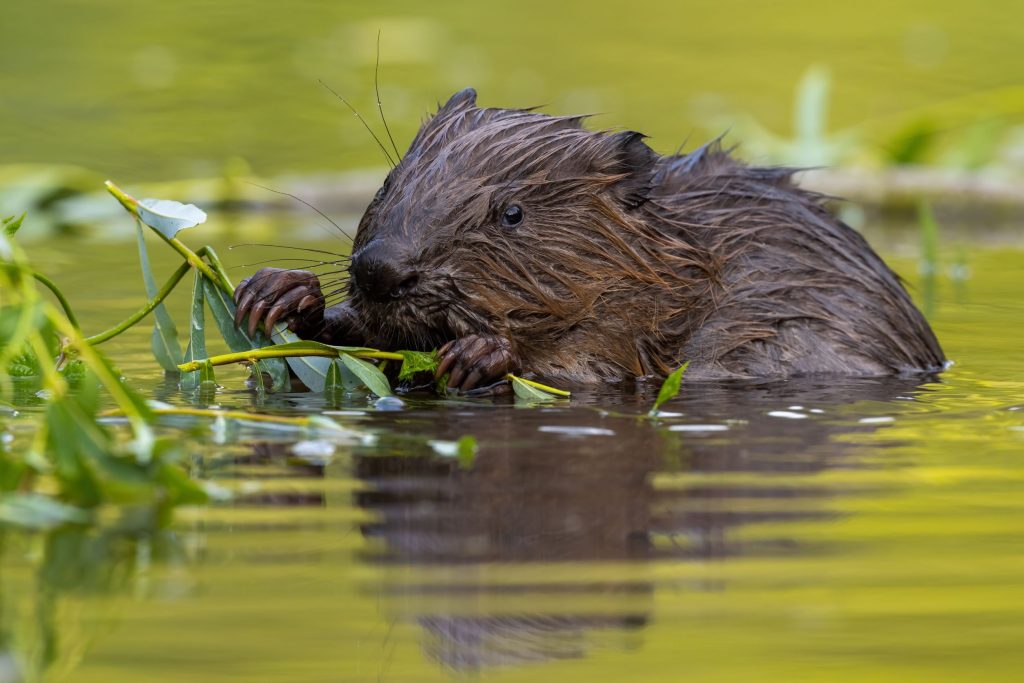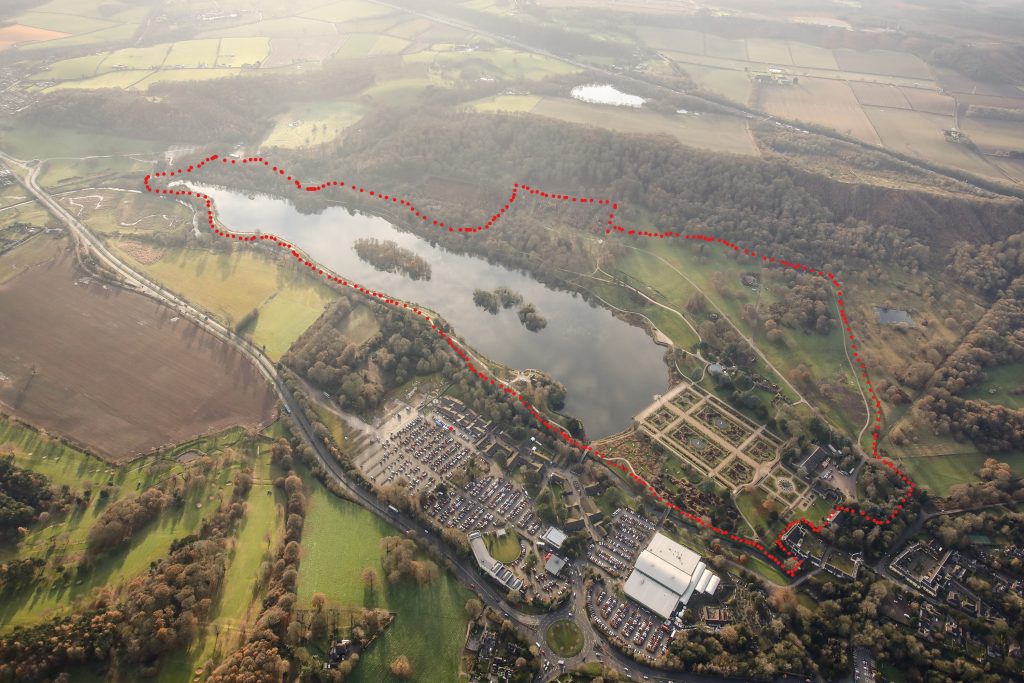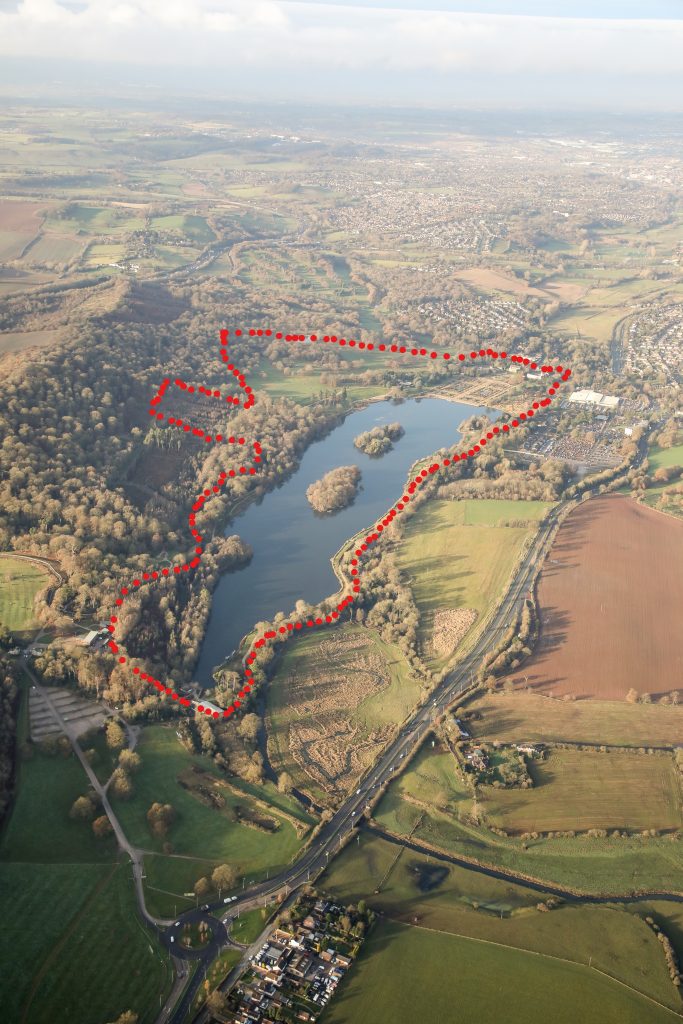Plans for beaver enclosure at Trentham get green light
Planning permission has been granted for Trentham, in Staffordshire, to build what could be England’s largest beaver enclosure, with plans to house up to four Eurasian Beavers from Spring 2023.

The 725-acre Estate has undergone a massive regeneration programme since 2003, which includes steps to increase biodiversity and re-introduce important species.
Wildlife is a vital element of Trentham’s tourism offer, which has a long-term commitment to nature conservation. Trentham boasts ancient Site of Special Scientific Interest(SSSI) woodlands which are home to historic trees and rare species. The Estate also has a broad range of habitats popular with birds, bug life, otters, deer, amphibians and reptiles.
Trentham’s plans for an enclosure around the perimeter of the lake and wider Gardens have been approved to help keep the beavers safe and prevent them from escaping. An enclosure is a necessary part of the reintroduction in order to contain the beaver population and satisfy the controls required to reintroduce the species.
The Eurasian beaver is a large herbivore mammal that is native to the UK and was once widespread. Beavers played a crucial role in the UK’s wetland landscapes from prehistoric times until they were hunted to extinction in the 16th century. The loss of the species also led to loss of the mosaic of lakes, meres, mires, tarns and boggy places.
Beavers are more widespread in Scotland; however, their introduction needs to be carefully controlled and can be unsuitable for certain areas, e.g. those that are agriculturally intensive where they often need to moved or culled. To help prevent the culling of the important species, Trentham is offering a safe new home for relocated beavers and has a licence from Natural England for up to four.
In a bid to help re-introduce the species, Trentham is working alongside ecologist and author, Derek Gow, who founded the Derek Gow Consultancy formed of a team of specialists in conservation, surveys, breeding and reintroduction. The project is also being supported by the Staffordshire Wildlife Trust, The Beaver Trust and The Environment Agency.
Beavers are often referred to as ‘ecosystem engineers’ and their role in combating climate change is increasingly being recognised, as they make changes to their habitats, such as coppicing trees and shrub species, damming smaller water courses, and digging ‘beaver canal’ systems. These activities create diverse and dynamic wetlands – helping to connect floodplains with their watercourses once again. In turn, these wetlands can bring enormous benefits to other species, such as otters, water shrews, water voles, birds, invertebrates and breeding fish, as well as sequestering carbon.
Alastair Budd, Senior Director of Trentham, comments: “Christmas really has come early for all the team at Trentham as we embark on this brilliant new project. We are already packing the Beavers’ bags for their relocation to this wonderful county!
“We are incredibly thankful for the support of Stafford Borough Council, Staffordshire County Council and their whole team, especially the local councillors who have supported this major project for the region, which will ensure Staffordshire’s visitor economy continues to develop and thrive.”
Alastair adds: “Beavers are one of the most important species in our habitats and we want to help visitors to understand why this once extinct UK native should be back in the English countryside, helping to restore our ecosystems and mitigate the impact of climate change.
“This could be one of the largest beaver enclosures in England and an important place for the public to engage and learn more about the species and their vital role.”


Ecologist, Derek Gow, commented: “The news that the final planning go ahead has been given for the release of beavers into the central lake system at Trentham is great news. The species, which was hunted to extinction by humans in the late 1700’s, as we now know is not a creature of wilderness and can live contentedly alongside people. Trentham with its over 700,000 visitors a year will offer a splendid opportunity for many people to both see a free-living family group of beavers on the main lake itself and their field signs such as tree felling and gigantic stick-based lodges along its edge.”
Nick Mott, Staffordshire Wildlife Trust’s River Restoration Manager, said: “Staffordshire Wildlife Trust is delighted that the Trentham has been given the green light to bring beavers back to our county and we can’t wait to see the difference they make to the site. They are ecosystem engineers which will be of great benefit to the habitat, improving it for a wide range of species such as dragonflies, toads, stag beetles and water voles.”
Ward Councillor Roy James commented: “Congratulations to Trentham and the team behind the project, with special mention to Head of Biodiversity & Horticulture, Carol Adams and Commercial Director, Claire Twaites. The re-introduction of beavers is a great boost for Trentham, for Staffordshire and for Nature and I look forward to seeing the project progress.” Trentham will be recruiting a new Wildlife Ranger to join the team in the new year. This exciting role will include engaging visitors in tours and talks and educational group visits to learn all about beavers and the other exciting species at Trentham. They will lead new opportunities for wildlife volunteers for individuals or corporate